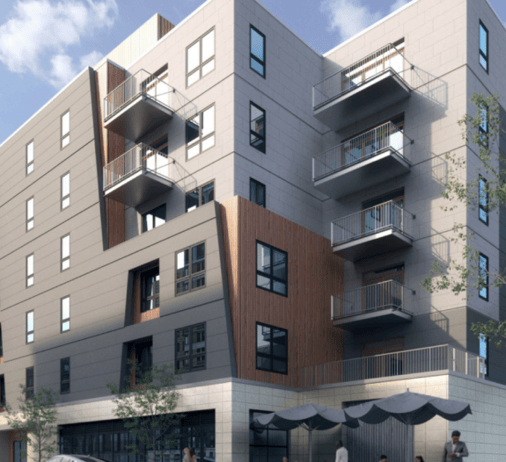The State of the Housing Market in 2022: What You Need to Know
It’s the question on seemingly everyone’s mind this year: where is the housing market headed in 2022? What does the real estate landscape look like? While no one can truly foresee the future, we can look at trends and expert forecasts, and let our educated predictions guide us.
Of course, we must remember that circumstances can change rather rapidly, so it’s important to stay up to date with reports and trends. But for the short term, here are a few factors affecting what we’re seeing in the market today.
How Housing Inventory Has Shifted During the Pandemic
When the pandemic hit, national real estate organizations predicted a slowdown in the housing market that never came to fruition. Instead, by the summer of 2020, the housing market was thriving as millennial first-time homebuyers rushed to take advantage of historically low mortgage rates. As a result of the surge in homebuyer demand, inventories became scarce.
By Spring 2021, housing inventory had dropped by 32% from pre-pandemic levels. With purchasers vastly outnumbering available properties, competition rose, and would-be buyers had no choice but to offer more than list prices to get their offers accepted. In turn, we’ve seen record-breaking bidding wars and homes selling for all-time highs.
By 2022, inventory levels were expected to begin catching up with demand. With vaccines readily available and a decrease in COVID-19 surges, more senior homeowners who had been hesitant to move during the pandemic were expected to list their properties and begin moving and downsizing again. In many cases, however, older Americans are now opting to either “age in place” (thanks to increased equity and home improvement) or even “upsize” their homes (and reap the benefits of a seller’s market in the process).
But that’s not all: well-documented supply-chain issues and labor shortages have greatly slowed the home-building industry. Mix in foreclosure moratoriums during the pandemic, which left investors -- flush with cash and in search of portfolio properties -- significantly outbidding the average home buyer, and you have a recipe for a supply-and-demand disaster.
The outcome of that mess: the U.S. is short over 5 million homes, with COVID-19 induced aftershocks leaving little ramp-up relief in sight.
Consider this perspective: Inventory levels in January 2021 were a whopping 42% lower than in January 2020, per Forbes. And yet, of the 327 Zillow-tracked housing markets, 254 (77%) had inventory levels down by over 30% by the end of February 2022. And although foreclosures are expected to rise over the coming months, this data means the housing market is even tighter now than it was in early 2021.
Predictions for the Housing Market in 2022
Will the housing market crash in 2022? In short, probably not.
Could we see a slight recession, however? Maybe.
Here’s the landscape through May:
In 2021, as the seller’s market began to roar, the U.S. experienced an unsustainable 18.8% increase in home prices, the largest single-year leap in 34 years. While market analysis predicted slightly slower growth in 2022, the first several months of 2022 proved otherwise.
Zillow, for example, predicted in late 2021 that home growth would slow to 11% by the end of 2022. By late January, that was updated to 16.4%, and by the end of February, they predicted that year-over-year growth would set an all-time record with 21.4% growth in May of 2022. Instead of cooling to 11% growth by the end of the year, the prediction rose to “just” 17% -- only slightly below the unsustainable appreciation rates of 2021.
And while the Federal Reserve increased interest rates in hopes of cooling the market and convincing buyers to wait and not overpay, it’s seemingly had the opposite effect through the first four-plus months of the year, with buyers panicking to jump on rates before they get any higher and price those buyers out of the market.
Cooler Market on the Horizon?
With national averages for mortgage rates creeping toward 5.5% this month, the housing market is finally beginning to cool ever so slightly.
Per Bloomberg, one Canadian market is serving as an example of what the Fed is hoping will come to pass in the States: many sellers are suddenly struggling to offload their homes with interest rates over 5% zapping would-be buyers from the market. Many of those cash-laden investors are backing down, too, as the average cost of rent – albeit still quite high – isn’t enough to cover their mortgage payments after the combination market growth and rising interest rates. With no money to be made, they’re not buying, which helps cool the market.
It’s an encouraging sign for frustrated buyers, but it’s more of a deceleration than a sign that a crash is coming. Remember: all the causes that led to this booming market – namely supply issues – still apply.
But there’s a breaking point, and we might finally be approaching it.
Will Interest Rates Go Down?
Nobody has a crystal ball, but there are a few factors that contribute to the forecasts that experts are able to make. One of them is the rates of 2-year and 10-year Treasury rates. When the interest rates for 2-year bonds are higher than those of 10-year bonds, we call the phenomenon an inverted yield curve.
In layman’s terms, this essentially signals that lenders feel there’s a greater risk of lending money over the next two years than there is over the next 10, which many economists believe implies an economic recession is pending.
“When the curve inverts,” explains CNBC, citing Bespoke, “‘there has been a better than two-thirds chance of a recession at some point in the next year and a greater than 98% chance of a recession at some point in the next two years.’”
In late March and early April, the yields inverted for the first time since 2019.
With inflation hitting 40-year highs and housing price appreciation projected to set an all-time high, would anyone really be surprised to see the economy scale back ever so slightly? Of course not.
And historically, when a recession hits, interest rates drop – often to new lows.
Let our friend and partner, CrossCountry Mortgage Senior Vice President Chris Devin, explain:
Should I Buy a Home in 2022?
Amidst the craziness of the 2022 housing market, one thing has become abundantly clear: the value of homes is continuing to rise. And although price appreciation may steady from its current skyward trajectory, that value increase is here to stay. That, combined with inflation across the U.S. hitting 40-year highs, means that home prices may never be lower than they are right now.
Why Now Is the Time to Buy a Home
Forget talk of a housing bubble. This isn’t 2008 – and, frankly, even the 2008 recession didn’t severely depreciate housing prices in Massachusetts. So if you’re worried about the bottom falling out from under the current market after you purchase a home, don’t be.
The real change you can expect is to see prices continue to slowly rise. Sure, we may see an economic recession, and interest rates will eventually fall in turn. But inflation remains undefeated, which means a home is actually a great investment.
Our Managing Partner, Michael DiMella, and Chris Devin explain why now is still a great time to buy real estate:
No matter what, when buying a home, you need to have a trusted team in place to guide you through the process. Ready to speak with the first member of that team? Meet our agents, or contact us today to learn more.

